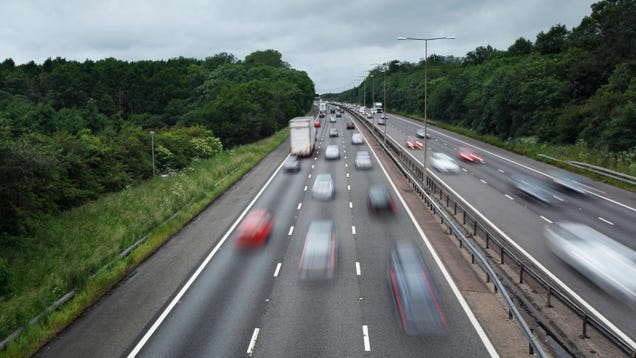In July, Texas’ Mitchell County passed a measure to make it illegal for someone seeking abortion to travel on a road running through the county. This week, one of the four county commissioners who unanimously voted to adopt the policy called it “unenforceable” to Rolling Stone.
The ordinance, crafted by the architects of Texas’ SB8 law (the abortion ban that allows people to sue anyone who helped someone get an abortion for at least $10,000), uses SB8’s same enforcement policy via private lawsuits. It makes it illegal to “knowingly transport any individual for the purpose of providing or obtaining an elective abortion” if one’s travel to an abortion clinic “begins, ends, or passes through” the county, framing this as “abortion trafficking.”
Read more
Republicans—and Supreme Court Justice Brett Kavanaugh—claimed for years that sans Roe v. Wade, people could simply travel across state lines for abortion care. “No state has banned interstate travel for adult women seeking to obtain an abortion,” Oklahoma Sen. James Lankord (R) said on the Senate floor in July 2022, when Democrats introduced legislation to protect a woman’s right to travel for an abortion. “This seems to be just trying to inflame, to raise what-ifs.”
Of course, months later, Idaho became the first state to criminalize abortion-related travel, specifically for minors. In July, nearly two dozen state attorneys general signed a letter stating they have a right to access the medical information of their residents who travel for abortion. And just a couple of weeks ago, Alabama’s attorney general called helping people travel for abortion a “criminal conspiracy.”
But, to Jones’ point, the ordinances clearly violate individuals’ right to travel freely, and determining who’s traveling where and for what on Mitchell County’s roads at any given moment is a tall task. But there may still be some legal threat: The surveillance apparatuses that could hypothetically track people’s travel across state lines to abortion clinics exist—namely through increasingly prevalent automated license plate readers. Should an anti-abortion state or county be doggedly determined enough to build a case against an abortion seeker, they could try to obtain data collected by these readers. And there’s little legislation to regulate this: In California earlier this year, a sheriff was exposed for sharing license plate reader data with state governments that ban abortion, per the Electronic Frontier Foundation, though it’s not clear what the data was used for. In June, Illinois’s Democratic governor signed a law to prohibit the sharing or transfer of license plate data in a move that was widely praised by advocates in the state.
That said, abortion rights advocates have argued the enforceability of these increasingly wild policies is only secondary: “The purpose of these laws is not to meaningfully enforce them,” Neesha Davé, executive director of the Lilith Fund for abortion access in Texas, told The Washington Post earlier this month. “It’s the fear that’s the point. It’s the confusion that’s the point.”
More from Jezebel
Sign up for Jezebel’s Newsletter. For the latest news, Facebook, Twitter and Instagram.










